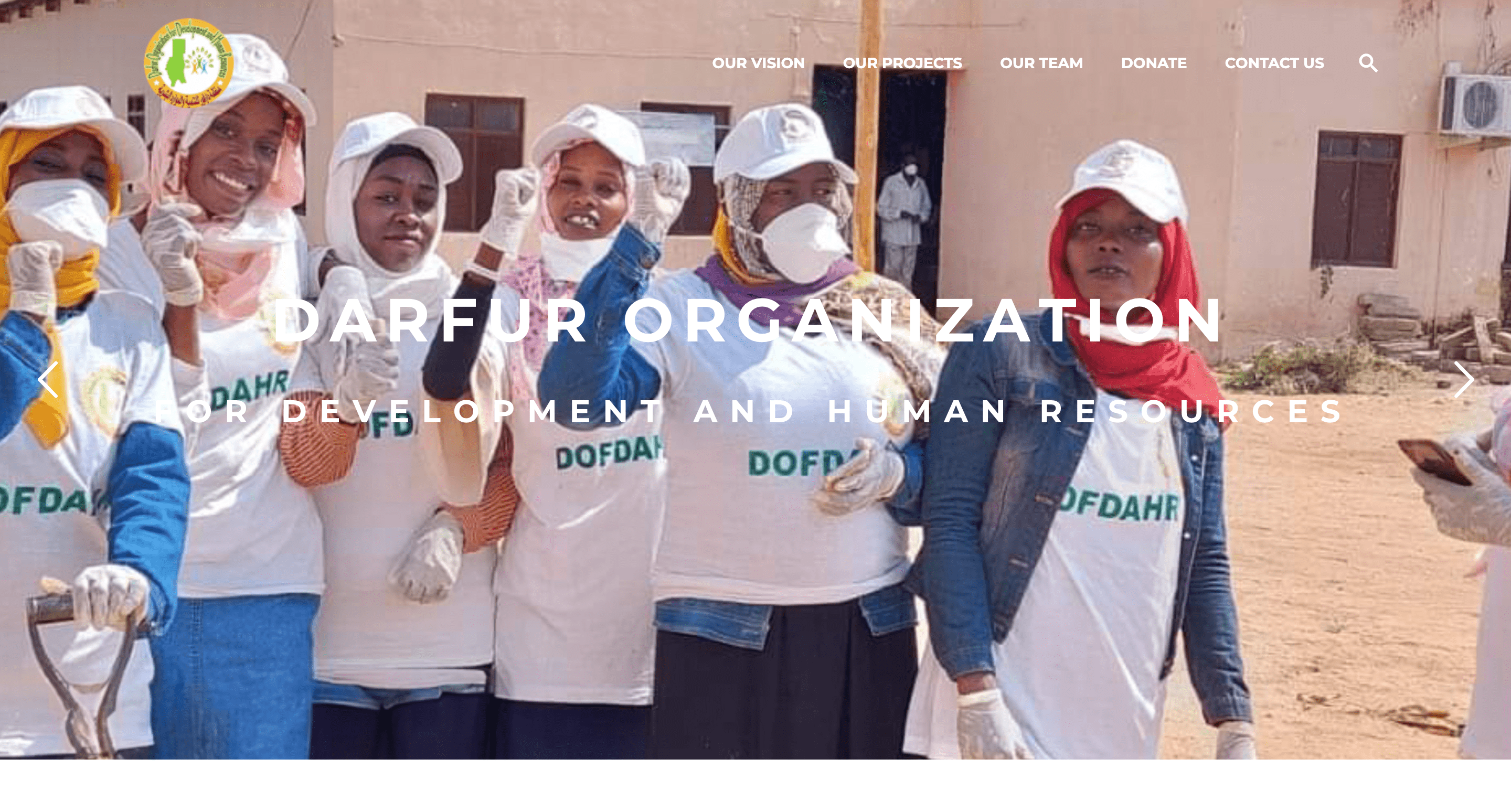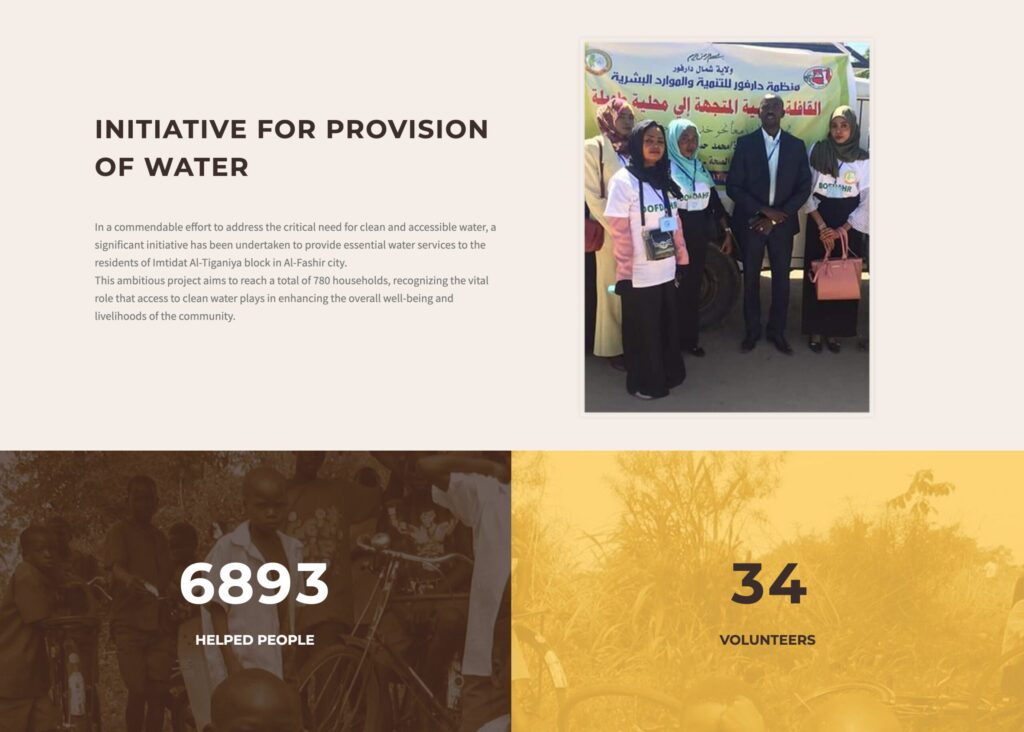Darfur Organization
Darfur Organization for Development and Human Resources

About the company
Darfur Organizaion For Development & Human Resources (DOFDAHR) focuses on community development, humanitarian work, and human resource enhancement through training in areas such as peaceful coexistence, conflict management, negotiation, and peace education. Collaborating with national and international entities, it strives for sustainable development, offering activities for conflict-affected families and improving community life through various projects.
PRO-BONO
egforit offers its broad range of technology services on a pro-bono basis for small yet valuable projects for NFPs and NGOs internationally, sourcing such opportunities via Tech to the Rescue – a platform that connects technology companies like egforit to nonprofits organisations around the world.
The Challenge
Darfur Organization faced a pivotal challenge: the absence of a dedicated website. This limited their visibility, credibility, and overall engagement efforts for advancing their cause. Establishing an online presence was imperative to their mission to enhance outreach, and create more support. We recognized the significance of overcoming this challenge and strategically worked towards the implementation of a website.
The Solution
Through TechtotheRescue, the game-changer linking tech companies with nonprofits, egforit transformed DOFDAHR’s online presence! By leveraging this powerful platform, egforit created a dynamic website that propelled their organization into the digital spotlight. Witness the impact of technology harnessed for a greater cause – transforming visions into a compelling online reality



